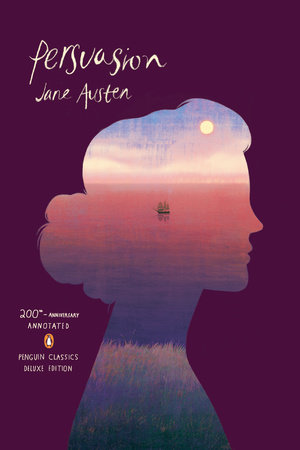Jane Austen's beloved and subtly subversive final novel of romantic tension and second chances. Now a motion picture from Netflix starring Dakota Johnson and Henry Golding, and a TikTok Book Club Pick.Persuasion tells the story of Anne Elliot, a woman who – at twenty-seven – is no longer young and has few romantic prospects. Eight years ago, she was persuaded by her friend Lady Russell to break off her engagement to Frederick Wentworth, a handsome naval captain with neither fortune nor rank. When Anne and Frederick meet again, he has acquired both, but still feels the sting of her rejection. A brilliant satire of vanity and pretension, Austen’s last completed novel is also a deeply felt and relatable love story tinged with the heartache of missed opportunities.
For more than seventy years, Penguin has been the leading publisher of classic literature in the English-speaking world. With more than 1,700 titles, Penguin Classics represents a global bookshelf of the best works throughout history and across genres and disciplines. Readers trust the series to provide authoritative texts enhanced by introductions and notes by distinguished scholars and contemporary authors, as well as up-to-date translations by award-winning translators.
On sale: June 28, 2011
Grade: Grades 9-12 + AP/IB
Page count: 336 Pages
ISBN: 9780143106289
Jane Austen (1775-1817) was extremely modest about her own genius but has become one of English literature's most famous women writers. She is also the author of Sense and Sensibility, Pride and Prejudice, Emma, Persuasion, and Northanger Abbey.
Juliette Wells is associate professor and chair of the English department at Goucher College. She is the author of
Everybody's Jane: Austen in the Popular Imagination and edited the 200th-anniversary Penguin Classics Deluxe Edition of
Emma.
“Critics, especially [recently], value
Persuasion highly, as the author’s ‘most deeply felt fiction,’ ‘the novel which in the end the experienced reader of Jane Austen puts at the head of the list....' Anne wins back Wentworth and wins over the reader; we may, like him, end up thinking Anne’s character ‘perfection itself.’” –from the Introduction by Judith Terry

















